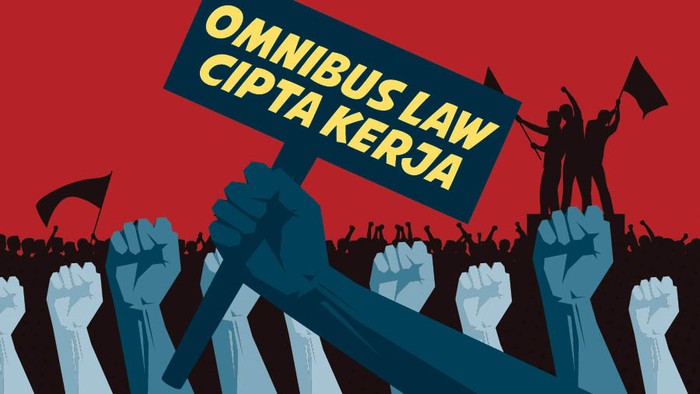Omnibus Law and Indonesian Community Welfare
In terminology, omnibus comes from Latin which means for everything. In a legal context, the omnibus law is a law that can cover all or one law that regulates many things. In other words, omnibus law means a method or concept of making regulations that combines several rules with different regulatory substances into one rule under one legal umbrella. The Job Creation Bill is only one part of the omnibus law.
In the omnibus law, there are three bills that are ready to be promulgated, including the bill on job creation, the bill on taxation provisions and facilities for strengthening the economy, and the bill on the development and strengthening of the financial sector. However, the Omnibus Law on Cipta Kerja is the law that has been in the public eye the most. Apart from being deemed to have contained many controversial articles, the Labor Union deemed the Job Creation Law only concerned with the interests of investors.
In substance, the Job Creation Law is the Omnibus Law package whose impact is the most influential on the wider community, especially the millions of workers in Indonesia. This is what makes many trade unions desperately reject the Job Creation Law. However, in fact, many parties actually agree with the application of the Omnibus Law. Based on the survey results, the Omnibus Law is preferred because it facilitates licensing, restores the national economy, and revives the micro, small and medium enterprises sector. Apart from that, the Omnibus Law was also approved because it encourages investment, simplifies bureaucracy, and resolves overlapping laws. However, there are still parties who disagree with the application of the Omnibus Law. Among the few who disagreed, the biggest reason was that the omnibus law was a foreign intervention, made it easier for Chinese workers to enter, disadvantaged local workers, laid off without severance pay, and the Eid holidays were eliminated. For this reason, let’s help the government together so that the Omnibus Law can be implemented optimally so that it can have a positive impact that is also optimal for Indonesia.
